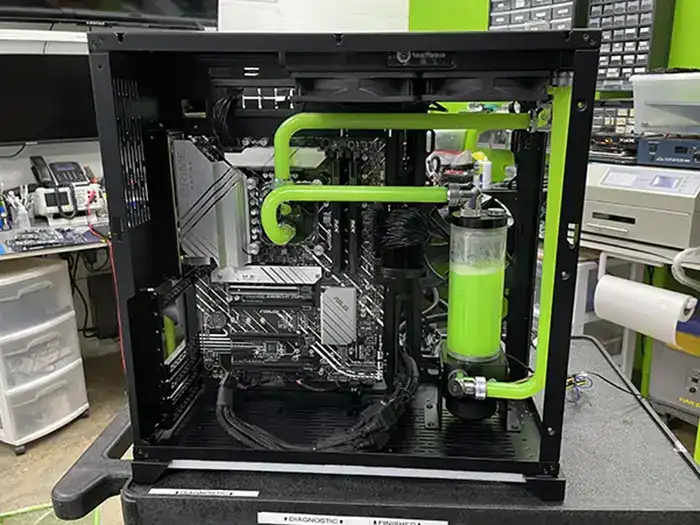Understanding the essential hardware components is crucial for both enthusiasts and beginners alike. Whether you’re building a new PC or troubleshooting an issue, having a grasp of these components ensures you can make informed decisions and optimize performance. This guide breaks down the key hardware components that make up a computer system. Fusionhardwares is the only place where you can find every hardware related to computer.
Central Processing Unit (CPU)
The CPU serves as the brain of the computer, responsible for executing instructions and processing data. It’s crucial for determining the overall performance of your system, with factors like clock speed, core count, and cache size influencing its capabilities. Modern CPUs from manufacturers like Intel and AMD offer a range of options suited for different tasks, from everyday computing to high-performance gaming and professional workloads.
Random Access Memory (RAM)
RAM provides temporary storage for data that the CPU needs to access quickly. It acts as a bridge between the CPU and storage devices like hard drives or SSDs, allowing for fast data retrieval and efficient multitasking. When choosing RAM, considerations include capacity (measured in gigabytes), speed (MHz), and latency. More RAM enables smoother performance, especially when running multiple applications simultaneously or handling large datasets.
Graphics Processing Unit (GPU)
The GPU is responsible for rendering graphics and images on your computer screen. While essential for gaming and graphic-intensive applications, modern GPUs also support general-purpose computing tasks through technologies like CUDA and OpenCL. GPUs from NVIDIA and AMD offer varying levels of performance, tailored to different user needs from casual gamers to professional designers and data scientists.
Storage Devices: HDDs and SSDs
Storage devices are where data is permanently stored on a computer. Hard Disk Drives (HDDs) use spinning magnetic platters to store data, offering large capacities at affordable prices. Solid-State Drives (SSDs), on the other hand, use flash memory for storage, providing faster data access speeds and improved system responsiveness. Balancing capacity, speed, and cost, many users opt for a combination of both HDDs and SSDs to optimize storage and performance.
Motherboard
The motherboard serves as the backbone of a computer, providing connectivity between all components. It houses the CPU, RAM slots, GPU slot, storage interfaces (SATA, M.2), and expansion slots for additional components like sound cards or network adapters. Choosing a motherboard involves considerations such as form factor (ATX, micro-ATX), socket compatibility with your chosen CPU, and features like USB ports, Wi-Fi capability, and overclocking support.
Power Supply Unit (PSU)
The PSU converts electrical power from your wall outlet into usable power for your computer components. It’s essential to choose a PSU with sufficient wattage to handle the demands of your hardware, ensuring stable and reliable operation. Factors such as efficiency rating (80 Plus Bronze, Silver, Gold, etc.), modular cabling, and safety certifications (like UL) are crucial for selecting a quality PSU that meets your system’s needs.
Cooling Solutions
Efficient cooling is vital for maintaining optimal performance and longevity of computer components. Air coolers and liquid coolers are common solutions for CPUs, while GPUs often come with their cooling solutions. Proper case airflow, thermal paste application, and monitoring temperatures ensure components operate within safe limits, reducing the risk of overheating and hardware failure.
Conclusion
Understanding these essential computer hardware components provides a foundation for making informed decisions when building, upgrading, or troubleshooting your computer system. By considering factors like performance requirements, compatibility, and budget, you can create a setup tailored to your specific needs, whether for gaming, professional work, or everyday computing.
Additional Resources
For more in-depth information on specific hardware components and advanced setups, explore our detailed guides and reviews on Softnix, where we offer a range of computer hardware products and expert advice.
This blog aims to empower readers with practical knowledge to navigate the complexities of computer hardware confidently. By mastering these essential components, you’re equipped to harness the full potential of your computing experience.

